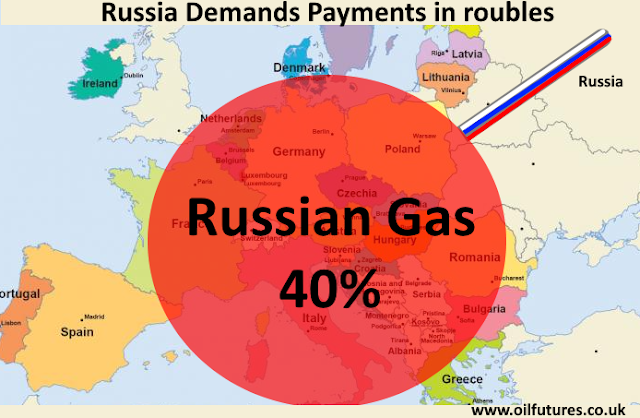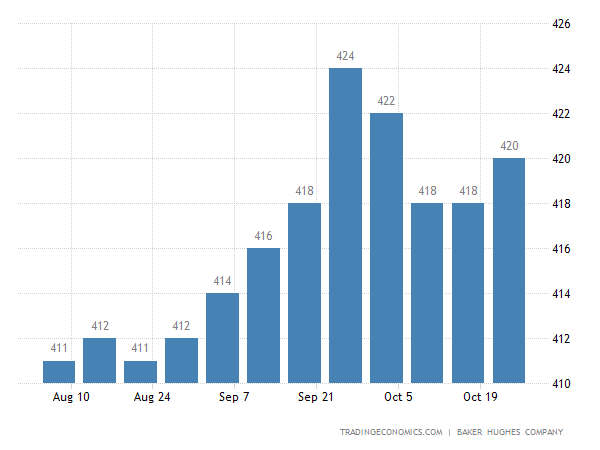As the conflict in Ukraine has just passed the month-one mark on the precarious timeline, as far as the supplies of oil and gas are concerned, the West is scrambling for finding substitutes for the Russian oil and gas, but with very little success.
Having exhausted every feasible move in placing the major producers under pressure by diplomatic means - and charm offensives - the major global economies appear to have come full circle; the media reports that they are about to agreeing upon the scale of releasing the next phase of strategic petroleum reserves, SPRs.
They have resorted to it before, of course, a few times, but to no avail. The prices remain stubbornly high, triggering off a tsunami of cost of living crises across the globe, exacerbated by gaps in supply chains, tight supply and shifting political loyalties ; economists warn that unless the global energy crisis is addressed as soon as practicable, there will be a global recession.
Past statistics support their gloomy forecast; every major recession in the past five decades has been preceded by an oil price crisis. The recession that followed the first Gulf War in 90s is a case in point.
The cumulative impact of the cost of food items and transport is already palpable in the markets; it can only get worse, as there is no light at the end of the tunnel.
European states heavily rely on Russian oil and gas and the latter is estimated to be a staggering 40% of their needs. In this context, Russia knows how to play the energy card and now wants it to be paid in roubles for oil and gas exports, if the country is question is in its 'hostile list'.
Although the US sending two LNG tankers to Europe in order to avert an immediate gas crisis, moves of this kind made on a whim, however, are not going to be long-term solutions; the world's largest LNG producer up until recently, Qatar, reiterated this week that it cannot be a substitute for Russian gas.
Although the US has rammed up the production of oil, judging by the increased rig count, analysts do not believe it can alleviate the supply crisis in the short term.
In yet another ominous development, the Houthi rebels targeted Saudi oil facility this week that resulted in a huge fire; these facilities are under constant threats from explosive-laden drones and missiles fired by the Houthis over the border between the Kingdom and Yemen; no defence shield offers 100% protection against these projectiles - especially when they fly in large numbers.
In the aftermath of the attack, Saudi Arabia warned this week unless the West helps the Kingdom against the threats, the global oil supply would be severely hit in the near future for which the former cannot be responsible - a swipe at the US, which removed the Patriotic batteries that detect and destroy rockets, from the Kingdom a few months back, much to Saudis' dismay.
The oil and gas crisis that is ominously looming over Europe is not that conducive in holding the alliances such as the NATO and the EU together; moreover, the prospect of a conflict involving nuclear bombs is no longer in the hypothetical realm; Russia made it clear on Friday that if the existence of the country is threatened, it will not hesitate to use it, emphasising that it is a nuclear power, indeed.
These developments cause considerable anxiety in the Western capitals. In this context, backdoor-contacts may be busy in both directions to bring the conflict to an early end without adding fuel to fire; it is significant, especially when the public in general is caught up in a loop of information war that proceeds in parallel with the real conflict on the ground, resurrecting the well-hackneyed phrase, 'truth is the first casualty of war'.
Having already sensed the danger on many fronts, the Western leaders may brainstorm in order to come up with a strategy for calming the tension between the two blocks, the West and Russia: it is not just the conflict getting out of hand that worries the leaders; a military confrontation involving nuclear weapons is a potential reality now despite the cliché, MAD - mutually assured destruction.
A slight change in the Western strategy emerged yesterday, when Liz Truss, the Foreign Secretary of the United Kingdom, said that the crippling sanctions against Russia could be lifted if the latter ends its occupation in Ukraine, according to The Telegraph. Her position resonates with that of the Chancellor of the Exchequer who had said earlier on that the sanctions cost the UK too.
All in all, there is a serious need of bringing about an end to the crisis in Ukraine through dialogue as soon as possible. Economic sanctions, when overdone, behave like a screw that is over-tightened; they just lose the effect altogether, especially when reluctant participants slip through loopholes to safeguard their own interests.









